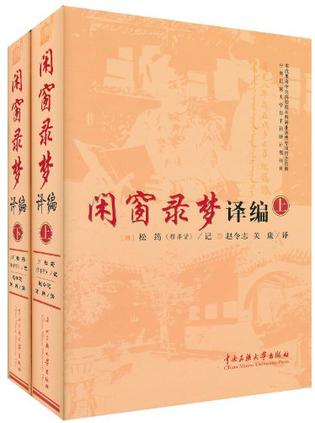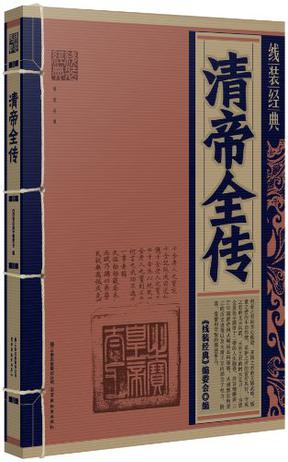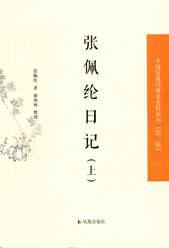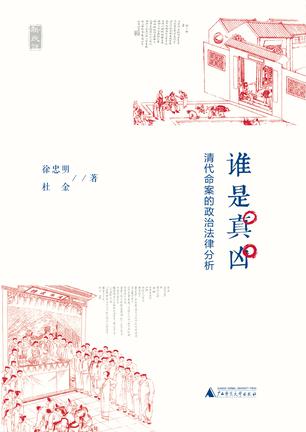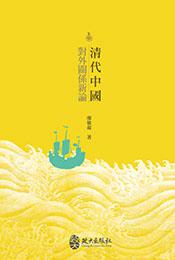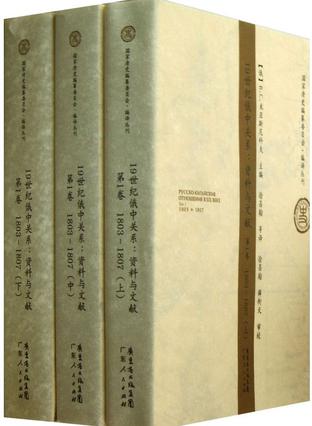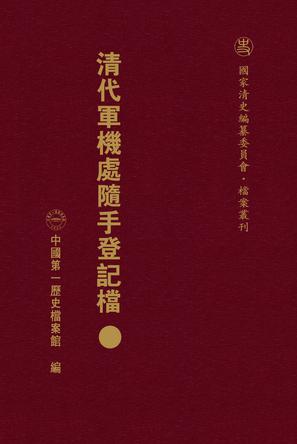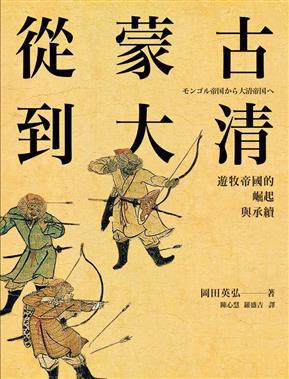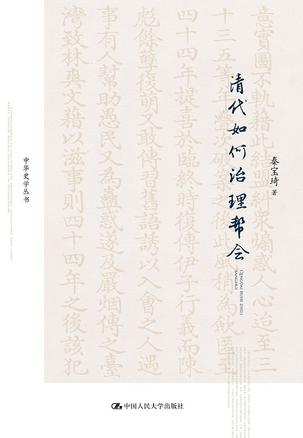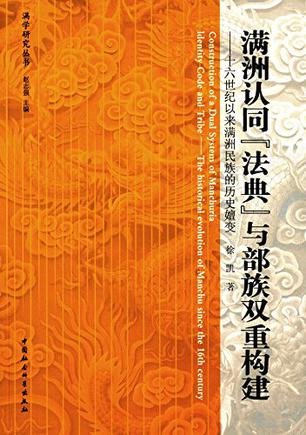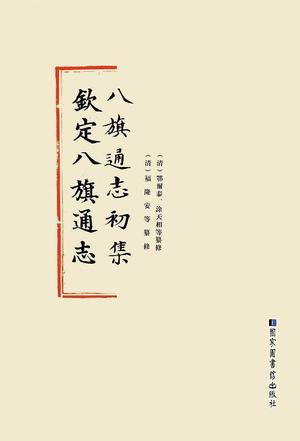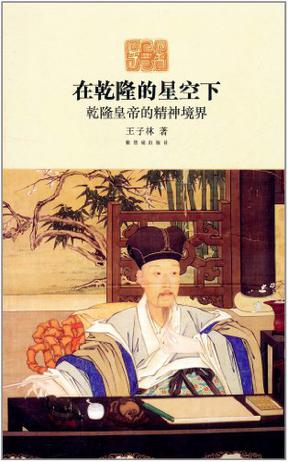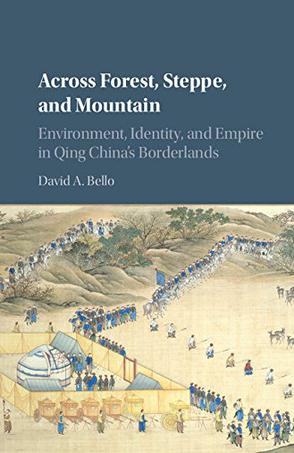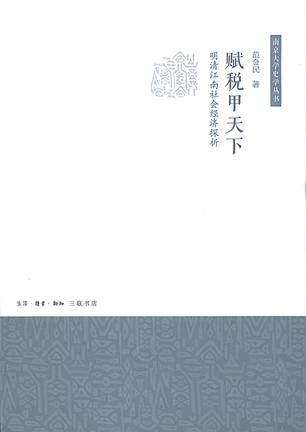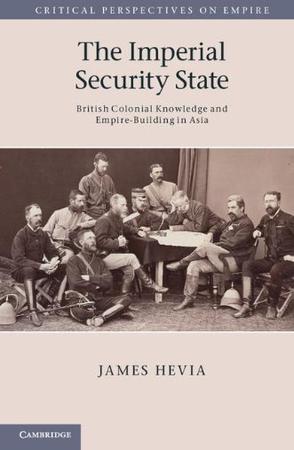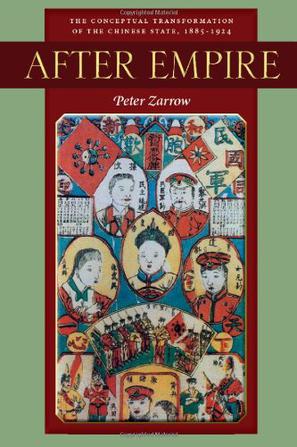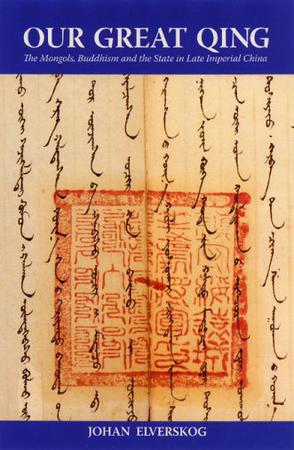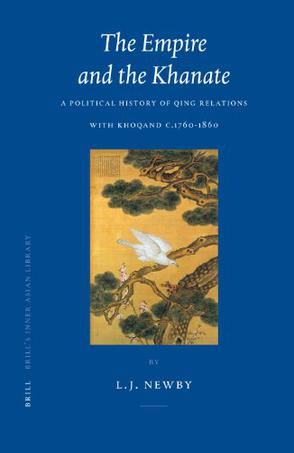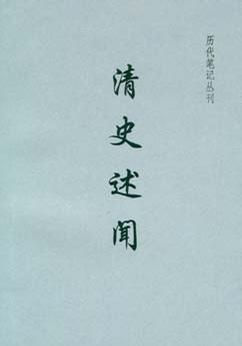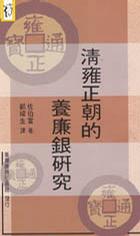欢迎来到相识电子书!
标签:清史
-
《闲窗录梦》译编(上下册)
《闲窗录梦译编(套装上下册)》内容简介:目前,研究清代北京内城旗人社会生活之学者,多援引《儿女英雄传》、《小额》、《正红旗下》等小说作为依据,乃因史料匮乏,不得不引而证之。数年前,日本学者于日本大阪大学附属图书馆箕面分馆(原大阪外国语大学图书馆)发现了《闲窗录梦》(以下简称《闲窗》),是记载道光初年内城旗人日常生活的满文日记手稿,可以弥补此方面史料之不足。该书基本以满文写就,部分人名、地名、店铺名称,以及个别条目记录用汉文。该书长16.9 em,宽13era,现存五卷,第一卷记事自道光八年(1828)元旦至七月二十九日,第二卷自道光九年元旦至六月三十日,第三卷自道光九年七月初一日至除夕,第四卷自道光十年元旦至五月三十日,第五卷自道光十五年元旦至六月二十七日。从个别封皮右下方有“丙”、“壬”字样来看,应有“丁、戊、己、庚、辛”等册,可以推断该书为残本。 该书系手稿,不见各种文献著录,应为海内外孤本。目前鲜有学者研究、引用,其全貌尚不为人知。但其内容丰富,对了解清代中后期北京社会经济、文化生活、风俗习惯、民族关系等方面,均具有重要史料价值。笔者得到大阪大学附属图书馆许可,将该书翻译完毕,并整理原文一同出版。在翻译过程中查阅相关资料,发现了一些问题,兹录之以求证于方家。 -
清帝全传/线装经典
《清帝全传》按照历史的先后次序,分别将十二位皇帝的身世、家庭、性格、才干、气魄、情感、成败、是非用流畅、浅显的语言细细道来,将他们修身齐家治国平天下的智慧和个人的爱恨情仇一一展现在读者面前,使读者既能够了解他们波澜壮阔的政治生活,又能够深层次地了解他们丰富曲折的宫室生活。所以,分开解读,《清帝全传》是清朝十二位皇帝的个人传记;整合起来,《清帝全传》又是一部长达二百九十六年的清朝历史。 此外,书中还收录了一些与皇帝关系密切的后妃、太监、王臣、民众的重要事迹,使读者能够多角度、全方位地品评这十二位皇帝的功过是非。 在中华民族走过千年兴盛、百年屈辱历史后的今天,研究这些帝王无疑具有重要的现实意义。阅渎清朝十二位皇帝的传记、找寻他们的历史轨迹、品谈他们的生活轶闻、思考他们的个人得失,对于今天的我们来说,既能增长学识,又能愉悦心境,还能明辨善恶,确实受益匪浅——从宏观上来说,历代皇帝的贤愚仁暴、百姓的安乐艰辛、国家的兴亡更迭、政治的清浊明暗、社会的进退优劣,都能给后世以镜鉴和启迪;从微观上来看,皇帝们个人的修养才智、处世的进退取予、行事的韬略谋断、交往的优劣广博,也都可以让我们从中得到启发和顿悟。 《清帝全传》观点新颖,视角独特,通过简明的体例形式、精练的文字内容,趣味性地透视出有血有肉的大清十二帝不同的命运轨迹,立体、真实地再现了大清王朝的兴衰、成败、治乱、福祸的脉络,深刻地揭示了中国封建社会由乱到治、由治到乱以及繁荣衰败的内在规律。 -
张佩纶日记
张佩纶,字幼樵,号蒉斋,是晚清重臣李鸿章的女婿,同时其本人也是晚清清流。他的日记——《涧于日记》有六部分组成,包括篑斋日记、嘉禾乡人日记暨见君子日笺、出塞日记、易窗日记、津门日记和兰骈馆日记等。始于光绪四年,迄光绪二十一年,内容虽有断层,但对研究和了解晚清政治文化方面颇有价值。 -
谁是真凶
本书研究了三个相互交叉的话题:命案、疑案与冤案,包括杨乃武与小白菜案、春阿氏杀夫案、三牌楼冤案等清代著名命案,以清季冤狱的产生与平反的案件为样本,着力揭示其中存在的重重黑幕,进而分析和解读这些案件最终得以平反的各种因素——司法政治、司法技艺以及社会网络的隐秘故事,旨在勾勒中国式的“超越合理怀疑”的独特意义与程序结构、清代中国的司法制度及其运作实践、清代命案的驳审程序及其特点、审理死刑“疑难案件”的法律制度与操作技艺等。 -
清代中國對外關係新論
「朝貢體系」論主要是從中國政治儀禮的朝貢制度來理解中國的傳統「外交」體系,並進一步推衍到通商制度,因而稱中國傳統的「外交」體系為「朝貢體系」,稱中國的傳通商制度為「朝貢貿易」,為了檢視其假說是否符合史實,也必須以外政和通商制度作為重新研究的課題。事實上清朝中國的對外關係原則,存在著政治與通商可以分離而不相干涉的空間,因此筆者在第一部中先以清朝的通商制度作為研究課題,重新爬梳史料,以史實建構出中國自宋代至清代的固有通商制度之歷史實像;在第二部中,筆者再以清朝的外政秩序作為研究課題,以史實建構出清朝中國固有外政制度及世界觀的歷史實像。通過對於通商制度與外政秩序的建構,來破除「朝貢體系」論的種種謬論。 -
19世纪俄中关系
《19世纪俄中关系——资料与文献》第一卷(1803—1807),内容包括536篇档案文献、当时一位著名回忆录作家维格尔的关于出使活动的长篇回忆录、戈洛夫金的传记材料以及其他多种相关资料。它们全部是产生于当时的公文、信函、命令、训令、圣旨、计划、方略之类的东西,以及账单、物件清单、花名册之类原始单据性质的文献,其可靠性和研究价值是不言自明的。在相关文件和资料的注释中,又含有许多独立成篇的有的甚至篇幅巨大、相当翔实的背景资料,往往引自同时代人的相关论述和回忆,数量众多,弥足珍贵。所有这些文献资料不仅对于研究戈洛夫金的出使具有重要价值,而且对于了解更广泛意义的中俄关系、俄中两国社会经济发展水平和两国某些地区的发展状况,乃至当时的国际关系格局、边疆民族关系等等,都能起到无可替代的作用。 -
清代军机处随手登记档
清代的军机处是辅助皇帝处理日常政务的最为重要的机构,是清廷行政效率、文书工作效率最高的机构,也是档案管理最为完善的机构。随手登记档就相当于我们今天说的收发文登记总簿,是军机处所有文件档案的总目,不仅在当时来说极为重要,而且直至今天仍不失其实际应用价值和借鉴意义。 “随手登记档”始自乾隆,迄于宣统,是清代军机处在日常行政和文书处理过程中的登记簿册,通过查阅随手登记档,不仅可以了解某一时期折件、谕旨运转的大体情况,更重要的是随手登记档又是一部翔实可信的编年史大纲,史料价值极高,能为研究者的研究提供重要又可靠的检索依据。此次国家图书馆出版社影印出版的《清代军机处随手登记档总汇》收录了从嘉庆元年到宣统三年(中间缺失同治元年至同治十年)一百余年间军机处收发文件的登记记录,基本上补齐了清代军机处随手登记档的全部内容。其内容主要包括两个方面:一是每日大臣及机构上奏的折件及其简单的内容记录,皇帝阅看的朱批以及处理意见,二是每日朝廷颁发的主要旨令的简要记录。 清代军机处“随手登记档”珍藏于中国第一历史档案馆,数百年无人得识。为了让广大学者能方便地利用这批资料进行研究,国家图书馆出版社将这批珍贵的历史文献详加整理,公开影印出版,必将为研究者提供更多的史料依据,进一步推动相关的研究进展。 -
從蒙古到大清
關鍵特色 ★本書完整重建從蒙古帝國到大清帝國版圖之下的北亞洲歷史,呈現遊牧民族視角的世界史圖像,以及從蒙古和滿洲看待中國史的新興觀點。 ★東京外國語大學名譽教授、《世界史的誕生》作者岡田英弘首部學術專著。 ★《這才是真實的中國史》作者宮脇淳子教授專文解說、國立政治大學民族學系藍美華教授強力推薦。 內容簡介 「教科書不一定都是對的」 繼承蒙古帝國的不是中國的明朝,大清才是蒙古真正的後繼者! 蒙古帝國的狂飆,突破中國史與世界史的傳統分野 向我們展開一部更具包容性、更多元、更完整的全球史圖像 我們如何看待中國史上的元朝與世界史中的蒙古帝國,這一段曾經重疊又不完全等同的歷史經驗? 不妨聽聽歷史學者們怎麼說: 黃仁宇先生在《中國大歷史》書中曾說,從宏觀的角度來看,蒙古人這一階段是中國第二帝國(隋、唐、宋)和第三帝國(明、清)間的過渡階段。 許倬雲先生在《萬古江河》中則指出,契丹、女真與蒙古三個族群,曾在中國建立了三個王朝,……蒙古與漢人的明朝,仍是南北對峙的情勢。因此,若以第十世紀到第十六世紀,看作中國近古史上的南北朝,也未為不可! 日本京都大學杉山正明教授認為,在元朝之前的「中國」是「小中國」,但中華帝國的範圍自蒙古時代以後大大地拓展了,從「小中國」轉向了「大中國」。 本書作者岡田英弘教授掌握了十四種語言,尤其強調滿蒙史料的重要性,在本書完整重建從蒙古帝國到大清帝國版圖之下的北亞洲歷史,呈現遊牧民族視角的世界史圖像,以及從蒙古和滿洲看待中國史的新興觀點。本書是岡田教授出版的首部學術專著,更是總結其學術生涯研究成果的集大成之作。 岡田教授主張―― 蒙古自1206年成吉思汗即位開始,建立了東自日本海、西至俄羅斯草原,橫跨歐亞兩洲的帝國版圖。後來蒙古帝國分裂成為四大繼承國,其中位置最靠東的宗主國大汗政權在中國歷史上被稱為「元朝」。元朝是中國歷代王朝的其中之一,但也是蒙古帝國的一部分。1368年朱元璋包圍大都,元朝皇帝退回北方的蒙古高原,在中國歷史上的元朝於此滅亡。不過對蒙古遊牧民族而言,元朝並未終結,他們只是失去了中國這塊殖民地。 本書主張,大清帝國是蒙古帝國真正的繼承者,皇太極在1636年建立大清帝國時,在北方承繼了北元的統治正當性,之後才越過萬里長城,於1644年得到明朝的領土。在論述中國歷史時,除了南方的中國本土之外,也不可忽略北方的正統性以及從蒙古史和滿州史看中國的觀點。在此一觀點的引導之下,所看到的不是單一的中國史,而是更多元、更完整、更具包容性的亞洲史與世界史。 名人推薦: 本書絕非易讀之讀物,而是由像岡田英弘這般罕見的歷史家之思想形成起始所構成的學術論文集。我確信即使將本書用以了解岡田歷史觀之地基,其出版亦有重大意義。 ――宮脇淳子(東京外國語大學博士、《這才是真實的中國史》作者) 本書是滿蒙史學大師岡田英弘的首部學術著作。岡田教授能掌握十四種語言,既能扎實地進行微觀研究,又能提出普世性的宏觀理論,相關領域學者無不受其影響,其成就也受到國際學界認同。除了理解許多滿蒙研究的重要課題外,本書更讓我們見識到一位世界級學者的成長,以及他如何在進行細部研究分析後,提出令人信服的觀點,糾正舊有的認知,進而開拓學術的領域。本書中譯本的出版格外令人興奮。 ――藍美華(國立政治大學民族學系副教授) -
清代如何治理帮会
清代帮会来源于“异姓结拜弟兄”组织,后发展为“结会树党”的“会党”。乾隆年间天地会出现后,各种名目的会党大量涌现。咸同治年间,四川啯噜发展哥为老会,亦称袍哥或红帮。漕运改行海路后,粮船水手行帮同青皮、光蛋、风客等走私团伙融合为青帮。于是,会党扩展为帮会。帮会的存在和发展对清政权构成重大威胁,清朝当局除对之实行武力打击外,还制定了惩处帮会的律和例,并不断增删修改,一定程度上遏制了帮会的发展,维护了清王朝的政权稳定与意识形态安全,对当今如何治理社会提供了有益的借鉴。 -
八旗通志初集 钦定八旗通志(全70册)
《八旗通志初集》《钦定八旗通志》是清代两部部帙较大的关于八旗制度的汉文书志,保存了相当多的档案史料,一定程度上具有资料长编的性质。同时又在体例方面自成一体,且后者更在前者基础上进行调整,内容上做了不少增删订补。可与相关满文文献互补互参,对研究清代八旗制度、满族历史等具有极高的参考价值。此二书均以我馆所藏相关版本为底本影印:《八旗通志初集》为清乾隆抄本,本次影印出版属首次披露;《钦定八旗通志》为清嘉庆武英殿刻本。前书内中有大量的夹签、天头地脚批注及内文朱墨批校,对本书成书轨迹的探讨以及校勘整理等均有极大的文献参考价值。 -
在乾隆的星空下
乾隆并不仅仅是他本人的名号,而是一个符号的象征,有着丰富的传统文化精神内涵。历史上没有一个帝王像他这样以一生的时间借用建筑,笔墨,器物等把传统文化精神之魂—仁,演绎得如此的成功和完美。 故宫所藏原状文物几乎每个角落都留下乾隆的痕迹。乾隆在他漫长的人生道路和执政生涯中定有一种精神信念支持着他。本书以物见史,以物见心,通过对所藏文物来展现乾隆的精神风貌。 -
Across Forest, Steppe, and Mountain
In this book, David Bello offers a new and radical interpretation of how China's last dynasty, the Qing (1644–1911), relied on the interrelationship between ecology and ethnicity to incorporate the country's far-flung borderlands into the dynasty's expanding empire. The dynasty tried to manage the sustainable survival and compatibility of discrete borderland ethnic regimes in Manchuria, Inner Mongolia, and Yunnan within a corporatist 'Han Chinese' imperial political order. This unprecedented imperial unification resulted in the great human and ecological diversity that exists today. Using natural science literature in conjunction with under-utilized and new sources in the Manchu language, Bello demonstrates how Qing expansion and consolidation of empire was dependent on a precise and intense manipulation of regional environmental relationships. Combines under-utilized and new sources in the Manchu language with natural science literature Complements a general professional and publishing trend in environmental history relating both to China and to global history of the early modern period Offers a new, radical interpretation of how China's last dynasty relied on the interrelationship between ecology and ethnicity to incorporate China's borderlands into its expanding empire -
赋税甲天下
本书是作者多年耕耘明清江南社会经济领域的研究成果。作者从社会经济、社会生活、商帮贸易的角度,逐一分析、探讨明清以来江南重赋问题的根源、江南地区的经济结构、江南士大夫文人行为方式的转变等问题。尤其引人注目的是,作者对当下人们关注的热点问题——明清地域商帮——有精彩的叙述和解说。 -
The Imperial Security State
The Imperial Security State explores an important but under-explored dimension of British imperialism – its information system and the close links between military knowledge and the maintenance of empire. James Hevia's innovative study focuses on route books and military reports produced by the British Indian Army military intelligence between 1880 and 1940. He shows that together these formed a renewable and authoritative archive that was used to train intelligence officers, to inform civilian policy makers and to provide vital information to commanders as they approached the battlefield. The strategic, geographical, political and ethnographical knowledge that was gathered not only framed imperial strategies towards colonised areas to the east but also produced the very object of intervention: Asia itself. Finally, the book addresses the long-term impact of the security regime, revealing how elements of British colonial knowledge have continued to influence contemporary tactics of counterinsurgency in twenty-first-century Iraq and Afghanistan. - Innovative study of British military intelligence before World War One - Sheds new light on the close links between empire-building and intelligence - Reveals the long-term origins of contemporary counterinsurgency tactics "This book is a groundbreaking study of the rise of the British imperial security regime in the 19th century. James L. Hevia’s mastery of rare military archives demystifies the trope of the Great Game and provides an extraordinarily detailed analysis of how the geopolitical boundaries of Asia were produced through a proliferation of route books, maps and statistics, and other apparati of imperial intelligence networks. His scrutiny of the imperial past makes the contemporary security-obsessed American empire supremely legible." Lydia H. Liu, author of The Clash of Empires "Clearly written, well researched, and persuasively argued, Hevia's latest book will engage a range of readers. Scholars of diplomatic history will find especially valuable Hevia's insights into the growth and development of military intelligence as the other major component of the developing European security regimes in Europe and in Asia. Historians of Asia will also gain much from his research, linking as it does south, central, and eastern Asia into the British imperial network of intelligence gathering and control." Michael H. Fisher, H-Diplo "… an elegant, thoughtful and often provocative analysis of how security imperatives dictated the collection, analysis, and dissemination of military information … The Imperial Security State makes a persuasive and passionate argument for the centrality of military intelligence in not only developing strategies to intervene in Asia but more significantly in defining what Asia actually meant then and now. It is a very compelling account, lucidly presented, solidly researched and theoretically sophisticated." Douglas M. Peers, Journal of Colonialism and Colonial History "Recommended." Choice -
After Empire
From 1885–1924, China underwent a period of acute political struggle and cultural change, brought on by a radical change in thought: after over 2,000 years of monarchical rule, the Chinese people stopped believing in the emperor. These forty years saw the collapse of Confucian political orthodoxy and the struggle among competing definitions of modern citizenship and the state. What made it possible to suddenly imagine a world without the emperor? After Empire traces the formation of the modern Chinese idea of the state through the radical reform programs of the late Qing (1885–1911), the Revolution of 1911, and the first years of the Republic through the final expulsion of the last emperor of the Qing from the Forbidden City in 1924. It contributes to longstanding debates on modern Chinese nationalism by highlighting the evolving ideas of major political thinkers and the views reflected in the general political culture. Zarrow uses a wide range of sources to show how "statism" became a hegemonic discourse that continues to shape China today. Essential to this process were the notions of citizenship and sovereignty, which were consciously adopted and modified from Western discourses on legal theory and international state practices on the basis of Chinese needs and understandings. This text provides fresh interpretations and keen insights into China's pivotal transition from dynasty to republic. -
Our Great Qing
"In a sweeping overview of four centuries of Mongolian history that draws on previously untapped sources, Johan Elverskog opens up totally new perspectives on some of the most urgent questions historians have recently raised about the role of Buddhism in the constitution of the Qing empire. Theoretically informed and strongly comparative in approach, Elverskog’s work tells a fascinating and important story that will interest all scholars working at the intersection of religion and politics." —Mark Elliott, Harvard University "Johan Elverskog has rewritten the political and intellectual history of Mongolia from the bottom up, telling a convincing story that clarifies for the first time the revolutions which Mongolian concepts of community, rule, and religion underwent from 1500 to 1900. His account of Qing rule in Mongolia doesn’t just tell us what images the Qing emperors wished to project, but also what images the Mongols accepted themselves, and how these changed over the centuries. In the scope of time it covers, the originality of the views advanced, and the accuracy of the scholarship upon which it is based, Our Great Qing seems destined to mark a watershed in Mongolian studies. It will be essential reading for specialists in Mongolian studies and will make an important contribution and riposte to the ‘new Qing history’ now changing the face of late imperial Chinese history. Specialists in Tibetan Buddhism and Buddhism’s interaction with the political realm will also find in this work challenging and thought-provoking." —ChristopherAtwood, Indiana University Although it is generally believed that the Manchus controlled the Mongols through their patronage of Tibetan Buddhism, scant attention has been paid to the Mongol view of the Qing imperial project. In contrast to other accounts of Manchu rule, Our Great Qing focuses not only on what images the metropole wished to project into Mongolia, but also on what images the Mongols acknowledged themselves. Rather than accepting the Manchu’s use of Buddhism, Johan Elverskog begins by questioning the static, unhistorical, and hegemonic view of political life implicit in the Buddhist explanation. By stressing instead the fluidity of identity and Buddhist practice as processes continually developing in relation to state formations, this work explores how Qing policies were understood by Mongols and how they came to see themselves as Qing subjects. In his investigation of Mongol society on the eve of the Manchu conquest, Elverskog reveals the distinctive political theory of decentralization that fostered the civil war among the Mongols. He explains how it was that the Manchu Great Enterprise was not to win over "Mongolia" but was instead to create a unified Mongol community of which the disparate preexisting communities would merely be component parts. A key element fostering this change was the Qing court’s promotion of Gelukpa orthodoxy, which not only transformed Mongol historical narratives and rituals but also displaced the earlier vernacular Mongolian Buddhism. Finally, Elverskog demonstrates how this eighteenth-century conception of a Mongol community, ruled by an aristocracy and nourished by a Buddhist emperor, gave way to a pan-Qing solidarity of all Buddhist peoples against Muslims and Christians and to local identities that united for the first time aristocrats with commoners in a new Mongol Buddhist identity on the eve of the twentieth century. -
The Empire And the Khanate
Drawing primarily on Qing archival sources, this study charts the changes in Qing policy that characterized the empire’s relations with the Central Asian khanate of Khoqand, from the Qianlong era to the mid-19th century. It explores how the development of Khoqand as a regional power and its involvement with the khoja-cause impacted on Qing policy towards Xinjiang (Eastern Turkestan) and the consolidation of the north-western frontier. Focussing on the Altishahr region, it illustrates how, a notion of border defined by geography, politics and military logistics began to replace the earlier open and more fluid notion of frontier in Qing political thinking. It suggests that these developments presaged a transition from empire to nation-state long before the upheavals of the late 19th century. -
清史述闻
本书依托丰瞻详实的原档、史料、亲历述闻等资料,对民国时期政府倡修《清史稿》的全部过程进行梳理,并以起例发凡、史料搜集、史例商榷、撰者变动等各个项目分别编汇相关文献,具有宝贵的文献和借鉴价值。 -
清雍正朝的養廉銀研究
清雍正朝的养廉银研究,ISBN:9789570513035,作者:(日)佐伯富著;郑梁生译
热门标签
下载排行榜
- 1 梦的解析:最佳译本
- 2 李鸿章全传
- 3 淡定的智慧
- 4 心理操控术
- 5 哈佛口才课
- 6 俗世奇人
- 7 日瓦戈医生
- 8 笑死你的逻辑学
- 9 历史老师没教过的历史
- 10 1分钟和陌生人成为朋友

